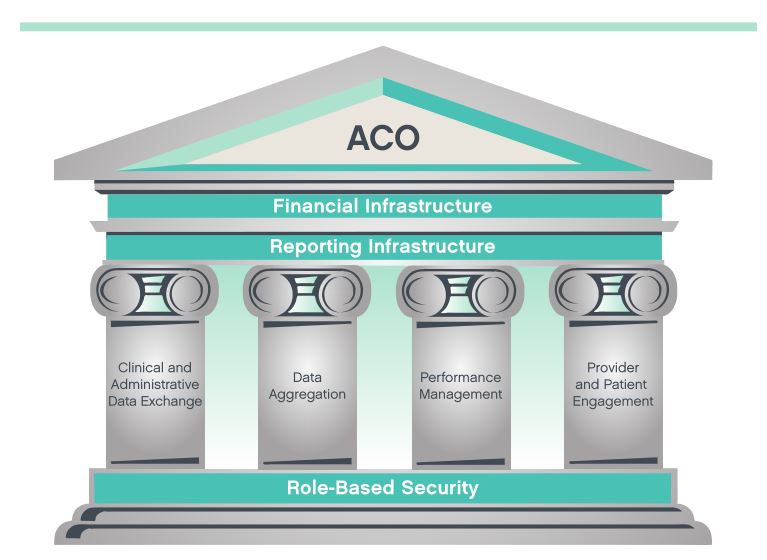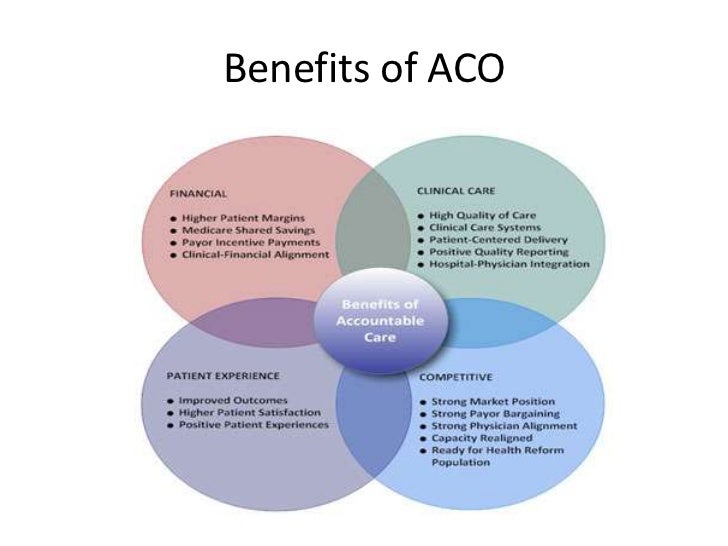The landscape of healthcare is, you know, always changing, and one model that's really making waves is the Accountable Care Organization, or ACO. People are talking a lot about how these groups of doctors, hospitals, and other healthcare providers are working together. It’s a way of giving coordinated, high-quality care, especially for Medicare patients, while also trying to keep costs down, which is, like, a very big deal for everyone involved.
You might wonder, what exactly does "aco polymer products inc" have to do with all this? Well, in some respects, this name, in a way, brings together the core ideas of how these accountable care structures are built and how they function. It’s about the very framework, the 'products' if you will, that help these organizations deliver better, more efficient care. The principles that guide ACOs are about collaboration and shared responsibility, and that’s a pretty powerful idea for patient well-being.
So, we're going to look into what makes these ACOs tick, and how an entity like 'aco polymer products inc' could represent the foundational elements that support this new approach to health services. It’s not just about treating illness, but rather about promoting overall wellness and managing care in a more connected way, which is, you know, quite a shift from older models.
Table of Contents
- What Are Accountable Care Organizations?
- How ACOs Aim to Improve Care and Reduce Costs
- The AAFP's Perspective on ACO Models
- The Future of Healthcare Delivery with ACOs
- Frequently Asked Questions About ACOs
What Are Accountable Care Organizations?
Accountable Care Organizations, often called ACOs, are groups of doctors, hospitals, and other healthcare providers. They come together voluntarily, basically, to give coordinated, high-quality care to patients, especially those with Medicare. This setup is all about ensuring that you get the right care at the right time, while also trying to avoid unnecessary services and medical errors, which, you know, can happen in less coordinated systems.
An ACO, as a matter of fact, is a healthcare delivery model that the Affordable Care Act (ACA) envisioned. It’s about providers working together on your care, sharing information, and making sure everyone on your healthcare team is on the same page. This approach is seen by many as, you know, potentially the next big thing in how health care gets delivered across the country.
The Foundational Principles of ACOs
The core idea behind ACOs is to shift from a fee-for-service model, where providers are paid for each service they provide, to one where they are rewarded for keeping patients healthy and managing their care effectively. This means a focus on preventive care, chronic disease management, and making sure patients don't have to go back to the hospital if it can be avoided. The goal, apparently, is to provide the best types of care for patients with Medicare while simultaneously helping to lower the cost of that care.
So, the "aco" part of "aco polymer products inc," in this context, truly represents this foundational shift in how care is organized and delivered. It's about building a system where accountability for patient outcomes and costs is shared among all the providers involved. This kind of shared responsibility is, you know, a very important part of making the system work better for everyone.
The Role of Family Physicians in ACOs
Family physicians play a really central role in Accountable Care Organizations. They are often the first point of contact for patients and are uniquely positioned to manage quality care for their patients across different settings. The American Academy of Family Physicians (AAFP), for instance, strongly supports the ACO model. They promote benchmarks, information systems, and payment regulations that protect both patients and family physicians, which is, you know, pretty vital.
These physicians, basically, empower themselves within the ACO structure to guide patient care more holistically. They can learn more about initiatives like the Center for Medicare & Medicaid Innovation (CMMI), which provides new alternative payment models specifically for primary care physicians. This means, you know, they get tools and support to do their best work in this new system.
How ACOs Aim to Improve Care and Reduce Costs
The whole point of ACOs is to improve patient care quality while also making healthcare more affordable. This is achieved through better coordination among providers. When doctors, hospitals, and specialists communicate effectively, it reduces duplicate tests, prevents medical errors, and ensures patients receive comprehensive care. This means, you know, a smoother experience for the patient and often better health outcomes.
For instance, an ACO might use shared electronic health records to make sure every provider has access to a patient's full medical history. This kind of information sharing is, you know, very important for preventing problems and making sure care is consistent. It’s about building a system where everyone is working from the same playbook, which is, like, a really good thing.
Payment Models and Incentives
The ACO model includes two main payment components. One part focuses on shared savings, where ACOs that meet quality targets and reduce costs below a certain benchmark can share in those savings with Medicare. The other part involves shared losses, where ACOs that don't meet targets might have to repay some money. This structure, you know, really motivates providers to deliver efficient, high-quality care.
It’s a bit different from the traditional fee-for-service approach, where there might not be as much incentive to coordinate care or reduce unnecessary services. In an ACO, providers are rewarded for keeping patients healthy and out of the hospital, which is, you know, a much better way to think about healthcare in the long run. This aligns the financial incentives with patient well-being, which is pretty clever.
Advanced Alternative Payment Models (AAPMs)
Under MACRA, the Medicare Access and CHIP Reauthorization Act, new payment tracks were created, including Advanced Alternative Payment Models (AAPMs). These models are a key part of the ACO framework. AAPMs offer additional incentives for providers who take on more financial risk and accountability for patient outcomes. This could be, you know, a really attractive option for many healthcare groups.
Participating in an AAPM can lead to higher payments for providers and, in theory, even better care for patients. It encourages innovation in care delivery and pushes organizations to be more efficient. Learning about these advanced models is, you know, pretty essential for any group looking to thrive in the evolving healthcare environment.
The AAFP's Perspective on ACO Models
The AAFP, as I was saying, has been a strong advocate for the ACO model. They believe it empowers family physicians and puts patients first. Their guiding principles for establishing independent physicians associations (IPAs) also tie into the benefits of this business model. IPAs can, in a way, serve as building blocks for larger ACOs, allowing smaller practices to band together and gain more leverage.
The AAFP emphasizes that these models should protect both patients and family physicians, ensuring fair payment and access to necessary information systems. This means, you know, that the structures, or "products," that support ACOs need to be very robust and fair to all parties involved. It's about creating a system that works for everyone, not just one segment.
Guiding Principles for Independent Physicians Associations
Independent Physicians Associations (IPAs) are groups of independent physicians who come together to contract with health plans or, you know, even form ACOs. The AAFP has guiding principles for these associations, focusing on their benefits to business and patient care. IPAs can help practices achieve economies of scale, share resources, and negotiate better terms with payers.
This kind of collaboration is, you know, pretty important for smaller practices that might otherwise struggle to compete or participate in larger healthcare initiatives. So, in a way, the idea of "aco polymer products inc" could represent the underlying structure or even the conceptual framework that enables these smaller groups to connect and become part of something bigger, like an ACO. It’s about providing the means for collective action.
The Future of Healthcare Delivery with ACOs
Many believe that Accountable Care Organizations represent the future of healthcare delivery. They offer a path towards more coordinated, patient-centered, and cost-effective care. As of today, there's a current list of ACOs, and their numbers are, you know, constantly evolving. This indicates a growing adoption of the model across the nation, which is pretty significant.
The ongoing development of new alternative payment models by the Center for Medicare & Medicaid Innovation (CMMI) further supports this trend. These innovations, apparently, are designed to keep pushing the healthcare system towards greater value and better outcomes. The concepts behind "aco polymer products inc" could, therefore, symbolize the very tools and frameworks needed to build and sustain these future-focused healthcare systems.
It’s about creating a framework, a kind of underlying 'product' or structure, that allows these groups of doctors and hospitals to truly work as a team. This means, you know, everyone pulling in the same direction for the patient's benefit. You can learn more about accountable care models on our site, and also check out this page for more details on healthcare innovation.
The shift towards ACOs is, in a way, a recognition that fragmented care often leads to higher costs and poorer patient experiences. By bringing providers together under a shared goal of accountability, the system can become much more efficient and humane. It’s a pretty compelling vision for how healthcare should operate.
Frequently Asked Questions About ACOs
What are Accountable Care Organizations?
Accountable Care Organizations (ACOs) are groups of doctors, hospitals, and other healthcare providers. They come together voluntarily, you know, to give coordinated, high-quality care to their patients. The main idea is to work together to ensure you get the right care at the right time, while also trying to lower overall healthcare costs, which is, like, a really big goal.
How do ACOs benefit patients?
ACOs benefit patients by promoting better care coordination, which can lead to fewer medical errors, less duplication of tests, and a more seamless healthcare experience. Patients in ACOs typically receive more preventive care and chronic disease management, which, you know, helps them stay healthier. The goal is to provide the best care while helping to lower costs, which is pretty good for everyone.
What is the role of the Affordable Care Act in ACOs?
The Affordable Care Act (ACA) envisioned the Accountable Care Organization (ACO) as a key healthcare delivery model. It provided the framework and incentives for groups of doctors, hospitals, and other healthcare providers to come together. This was, you know, a very important step in encouraging providers to work collaboratively to improve care quality and manage costs more effectively.
For more information on ACOs and their impact, you can visit the Centers for Medicare & Medicaid Services website, which is, you know, a very reliable source for details on these programs.



Detail Author:
- Name : Norwood Johnson
- Username : danny64
- Email : hmorissette@yahoo.com
- Birthdate : 1994-08-21
- Address : 639 Terry Ferry Cruickshankfort, NM 51016
- Phone : 337.336.6609
- Company : Rohan, Maggio and Hayes
- Job : Registered Nurse
- Bio : Debitis dolor exercitationem non ducimus. Repellendus doloribus pariatur omnis ut sint. Id ex temporibus nam ut quia ipsum. Sapiente aspernatur recusandae tempore iusto similique pariatur non.
Socials
facebook:
- url : https://facebook.com/lernser
- username : lernser
- bio : Deserunt quis ratione aut. Id est qui architecto sequi cupiditate et.
- followers : 4595
- following : 1242
twitter:
- url : https://twitter.com/liana_official
- username : liana_official
- bio : Aliquid velit reprehenderit vel sunt eos. Quo sint quibusdam explicabo sed accusantium aspernatur rerum ut.
- followers : 6639
- following : 2112



























